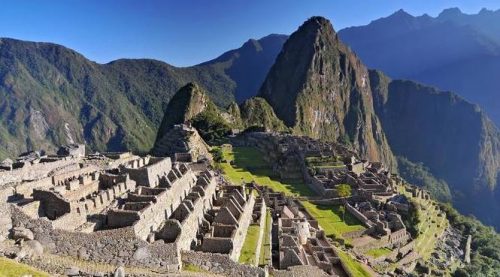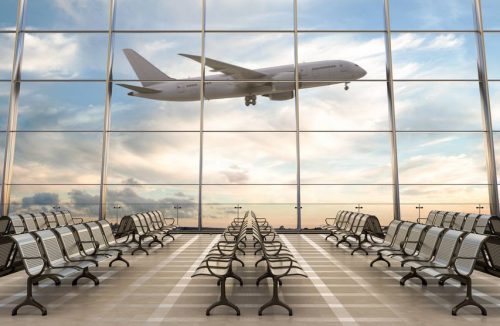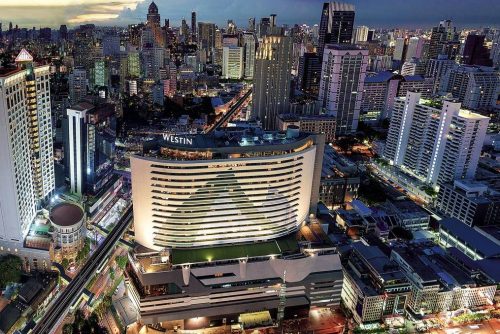Ho Chi Minh City, Vietnam, July 27, 2020 / TRAVELINDEX / Wink Hotels, a sleek, chic and vibrant lifestyle brand, locally born and locally positioned to tap into the booming domestic travel market in Vietnam, is poised to redefine affordable luxury across the country as it readies to open its debut hotel later this year.
Conceived by developer, Indochina Kajima, operated by Indochina Vanguard (both joint venture companies with Indochina Capital and Kajima Corporation, and Vanguard Hotels respectively) and designed by AW2, Vietnam’s first homegrown, international-standard hotel chain will personify the dynamic generation emerging throughout Indochina, catering to their fast-paced lifestyle and immersing them in each destination.
Fueled by economic growth and the advent of low-cost carriers, domestic tourism in Vietnam grew 22% per year from 2014 to 2019, registering 85 million domestic travelers last year. And even now, as Covid-19 containment measures disrupt international tourism, Vietnam’s successful management of the virus and the quick re-opening of the economy have prompted greater emphasis than ever on domestic tourism to spur growth.
Wink Hotels has long had the domestic market in its sights and with 48% of Vietnam’s 96 million population under the age of 34, the brand is set to become a vital proposition for young, aspirational and highly mobile business and leisure travelers.
“These are exciting times for the Vietnamese hospitality industry. There’s a massive, underserved market segment currently and it is our clear ambition to serve and inspire this youth market with a new and dynamic brand of hospitality,” said Wink Hotels CEO Michael Piro. “Wink Hotels will be modern, bold and resolute in personality – reflecting a strong cultural identity – while being deeply respectful of Vietnamese traditions. At the same time, we offer guests a fun and connected destination experience.”
The Wink Hotels brand blends creative design with functionality, Vietnamese values and a contemporary set of desires. Wink rooms will focus on the essentials – a bed to match the best in the world and water pressure to deliver a full-power shower.
But more than anything, Wink Hotels is about mind-set. The brand and hotels capture the youthful heart of Vietnam and will present that soul through Wink Guides, a team of talented, personality-driven associates who will up-end traditional deferential hospitality. Each Guide is encouraged to individualise interactions with guests; leveraging their local knowledge and sharing their own stories. Other key features are self-check in, grab and go Wink Food Carts, the best local coffee delivered through state-of-the-art Simonelli machines, and social, community spaces and flexible seating – and where the formal lobby of traditional hotels is no more.
Partnership and collaboration will be a signature of all Wink Hotels as the brand celebrates Vietnamese culture, creativity and commerce. For example, Wink has partnered with Toong, Vietnam’s first chain of co-working spaces, which will be featured in all Wink Hotels replacing the typical business centres.
The first Wink branded hotel will be the 237-room Wink Hotel Saigon Centre @ 75 Nguyen Binh Khiem, opening in Q4 2020. Properties to follow include the 243-room Wink Hotel Danang Centre @ 178 Tran Phu and a third in riverside Danang as part of a mixed-use complex with a 60-metre façade on Tran Hung Dao Street, along the Han River.
About Wink Hotels
Wink Hotels is Vietnam’s first locally-born, international-standard hospitality brand. This vibrant brand reflects the spirit of the Vietnamese people and takes inspiration from modern Vietnamese travellers who live and work in a fast-paced, ever-changing environment. Each Wink hotel provides a dynamic “affordable luxury” experience, and showcases the heart and soul of the destination with art-inspired interiors and by connecting guests to the upbeat local vibe. Created by developers Indochina Kajima and operated by Indochina Vanguard, Wink will launch its first hotel in Q4 2020, with plans to expand to at least 20 locations in the next five to seven years in major Vietnamese cities and beyond.
About Indochina Kajima
In September 2016, Indochina Capital, a leader in Vietnam’s rapidly growing real estate, financial services and capital markets, entered into a joint venture with Kajima Corporation, one of the biggest Japanese general contractors and real estate developers, to launch Indochina Kajima, a new real estate development platform in Vietnam. Indochina Kajima has an initial investment commitment of USD1 billion in real estate projects over the next 10 years in Vietnam’s key markets. The company is fully committed to create innovative real estate developments that build value for partners, clients and investors, while providing fulfilling opportunities for employees and enriching the communities in which the company operates. Indochina Kajima will establish a nationwide footprint with a focus on Hanoi, Danang and Ho Chi Minh City. Indochina Vanguard, operators of Wink Hotels, are a joint venture between Indochina Capital and Vanguard Hotels.











